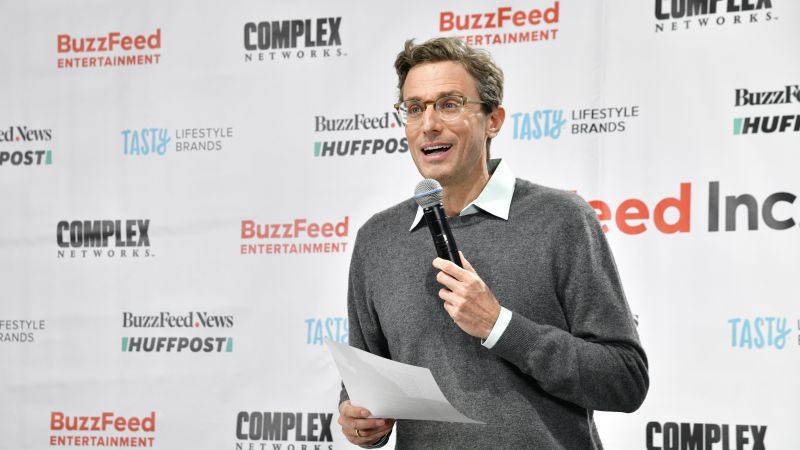
BuzzFeed sells Complex Networks for less than half of what it paid and slashes 16% of staff
CNN
BuzzFeed on Wednesday sold Complex Networks to NTWRK, an e-commerce company specializing in collectible items rooted in street culture, in a deal that further shrinks the struggling Jonah Peretti-led digital media empire that was once synonymous with virality and the social media age.
BuzzFeed on Wednesday sold Complex Networks to NTWRK, an e-commerce company specializing in collectible items rooted in street culture, in a deal that further shrinks the struggling Jonah Peretti-led digital media empire that was once synonymous with virality and the social media age. The $108.6 million sale of Complex is less than half of the $300 million BuzzFeed paid for the brand in 2021 and came as the company announced it would lay off 16% of its staff ahead of a “planned strategic restructuring” next week to “enhance the company’s profitability” and “reduce centralized costs.” “The sale of Complex represents an important strategic step for BuzzFeed, Inc. as we adapt our business to be more profitable, more nimble, and more innovative,” said Peretti, the chief executive of BuzzFeed. “This is also an opportunity to unlock greater value for the Complex brand by combining it with NTWRK’s expansive, commerce-driven business.” The uniting of NTWRK and Complex is, indeed, something of a natural marriage. NTWRK serves as a marketplace for many of the items that Complex covers, such as sneakers. Combined, NTWRK said it hopes to “create the definitive cultural commerce, content, and experiential platform.” While NTWRK’s acquisition of Complex unites two similar companies that could complement each other from a business standpoint, BuzzFeed’s willingness to part ways with Complex reflects a retreat for the once high-flying digital publisher that sought to redefine the internet. Digital publishers have struggled in recent years as they navigate brutal industry headwinds, a soft advertising market, plummeting social media referral traffic, and the looming threat of artificial intelligence.

Travis Tanner says he first began using ChatGPT less than a year ago for support in his job as an auto mechanic and to communicate with Spanish-speaking coworkers. But these days, he and the artificial intelligence chatbot — which he now refers to as “Lumina” — have very different kinds of conversations, discussing religion, spirituality and the foundation of the universe.

 Run 3 Space | Play Space Running Game
Run 3 Space | Play Space Running Game Traffic Jam 3D | Online Racing Game
Traffic Jam 3D | Online Racing Game Duck Hunt | Play Old Classic Game
Duck Hunt | Play Old Classic Game










